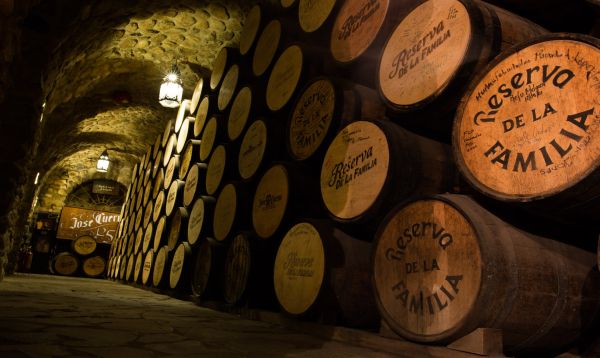Mexico City - Over the course of more than 200 years in the tequila business, Josť Cuervo will have been responsible for a fair few moments of giddy pleasure. Last week, it got one of its own thanks to a successful initial public offering (IPO). It was eight times oversubscribed and raised 18.6bn pesos ($920m) in exchange for 15% of the company.
Josť Cuervo, which is based in the western state of Jalisco, is one of the country's best-known brands, and has been run by the same family for 11 generations. It dominates the Mexican tequila industry; sales in 2015 came to 18.5bn pesos. It also holds an assured place in the history of mixology: the original margarita cocktails were purportedly made with Josť Cuervo tequila.
Long considered a candidate for flotation, it eventually published a prospectus in September 2016. The IPO was delayed, though, seemingly to allow the company to take stock of the impact of Donald Trump's election victory in November. Since then the peso has dropped over 10% against the dollar, and Mr Trump's desire to rework, even to rip up, the North American Free Trade Agreement, and perhaps impose a border tax on Mexican exports to the U.S. has sent tremors through the Mexican economy.
Josť Cuervo has attributes that make it particularly alluring to investors anyway. It controls its supply chain from end to end which makes it easier to manage costs. And in 2015 it made almost 2/3's of its revenues in America and Canada, so, with the majority of its costs in pesos, it has a natural hedge against the weakness of the Mexican currency.
The tequila industry has a particular advantage too when it comes to coping with the impact of a possible border tariff. Appellation-of-origin rules mean tequila can only be made in Mexico. So unlike, say, auto-parts manufacturers, tequila-makers run no risk of losing business to foreign competitors.
American drinkers could, of course, choose to quaff more bourbon if tequila's price rises on the back of a new tariff. But the recent growth in the market for expensive tequilas, which can be sipped and savored for around $50 USD, suggests that buyers may not be overly price-sensitive.
Furthermore, global sales of the agave-based spirit are rising. According to IWSR, which provides data to the wine and spirits industry, the tequila market will grow by 2.9% a year until 2020. That pace is second only to whisky.
Thanks to money from the IPO, Josť Cuervo is now also in a better position to diversify. It already owns Bushmills, an Irish whiskey, and could look to invest in other parts of the industry, such as gin and rum. And it could look to expand tequila sales in Asia. For the Chinese, the spirit may lack the status of posh cognac or whisky, but consumption is growing. Shanghai slammer, anyone?
Original article


